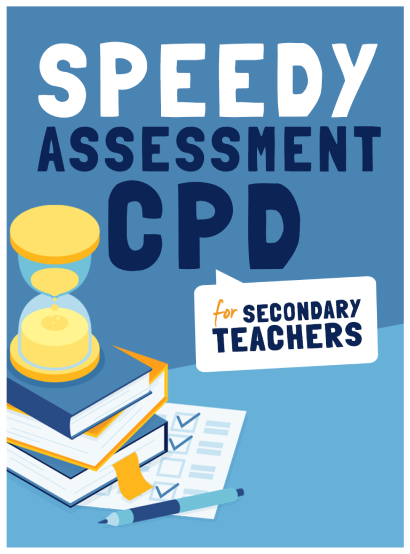Nearly 90% Of Teachers Say They Are Teaching ‘Pointless’ Lessons To Give Students A Better Chance Of Passing National Tests

Over the last year, 89% of teachers say they have taught a lesson they believe to have been of little or no educational value in order to help students pass national tests, with 43% of all respondents admitting this took place on at least a weekly basis. The survey of 436 teachers carried out by […]

- by Teachwire
- Classroom expertise and free resources for teachers

Over the last year, 89% of teachers say they have taught a lesson they believe to have been of little or no educational value in order to help students pass national tests, with 43% of all respondents admitting this took place on at least a weekly basis.
The survey of 436 teachers carried out by Teachwire sought teachers’ views on their level of autonomy in the classroom and the effect of high-stakes testing on the quality of their lessons and enthusiasm for teaching.
A significant proportion of the respondents, 61%, do not feel regularly excited by the content of the lessons they teach, though many feel the removal of high-stakes testing would help to change this, with 90% proposing this would allow them to teach more interesting lessons.
A similar proportion, 86%, also agreed that the quality of students’ education would improve if high-stakes tests were removed.
Alongside a narrowing of curriculum focus, time constraints were highlighted, with 81% of teachers saying they do not have adequate time to expand on the programmes of study and follow children’s learning interests.
The survey suggests that the antidote to this could, in part, be greater autonomy for teachers. If allowed to be more autonomous, 79% said the quality of their teaching would improve, 66% said it would reduce their workload, and 74% agreed it would encourage them to remain in the profession.
In response to the the report, Mary Bousted, Joint General Secretary, of the National Education Union (NEU) said: “Education Ministers must listen to our teachers, and work with us to reform assessment and accountability system so that it is proportionate and meaningful.
“When nearly 90% believe that high stakes testing is undermining the quality of education our children receive, something has to change. Giving teachers the professional freedom to ignite a passion for learning in their children is key not just to secure good educational outcomes, but also for retaining excellent teachers.
“Is it any wonder that our system is haemorrhaging teachers, when over 60% no longer feel excited about the lessons that they are teaching? Our children and teachers deserve better than this.”
Teachwire.net group editor Joe Carter said: “Though teachers have long expressed concerns over high-stakes testing and a lack of professional autonomy, the strength of feeling appears to be intensifying over recent months. We ran the survey to get a clearer view on the degree to which teachers feel high-stakes testing is having an impact on both their passion for teaching and their students’ interest in learning. Though the results show a concerning picture, our intention is to use the research to provoke a more positive reaction. We will be finding and sharing examples where teacher expertise and autonomy is leading to excellent and engaging education.”
Key findings
- 43% of teachers agree that they have taught a lesson of little or no educational value at least once a week over the past year in order to increase students’ chances of passing national tests.
- 89% of teachers say the removal of high-stakes testing would allow them to teach more interesting lessons.
- 44% of teachers do not feel their expertise as an education professional is respected, or that they have the freedom to apply their expertise in the classroom.
- 41% of teachers think the way in which they plan lessons is closely monitored.
- 35% of teachers say they do not have the freedom to choose which pedagogical approaches to use in their classroom.
- 81% of teachers say they do not have adequate time to expand on the programmes of study and follow children’s learning interests.
- 74% of teachers surveyed said greater autonomy would encourage them to remain in the profession.
Comments recorded during the survey include
- All through junior school you are thinking, “Will this get them ready for SATs in year 6?”.
- All the time we spend on high-stakes testing (discussing mock timetables, which paper to use, deadlines, data entry, writing intervention strategies in a spreadsheet, etc) could be used to discuss the curriculum and how to teach our subjects better.
- I could teach the geography that inspires and is meaningful. Instead, I have to teach to make sure they can try to pass the exam! As the GCSE becomes more content laden, this is impacting on KS3 too.
- It would mean I could focus on actual gaps in their knowledge as opposed to specific issues relevant to an exam paper.
- To achieve high end-of-year results – in order to receive a positive, rather than negative Ofsted – we teach mainly maths and English and other subjects are put aside. Bluntly, my teaching is currently boring due to the restraints I feel I’m under.
- Pressure is being forced down onto headteachers and many of those are in turn making working in a school highly stressful. It’s not about the children. This is affecting the self confidence of many teachers and making us question our careers.
- The pleasure of teaching and learning is being eroded away by the constant need to ensure that students can pass exams. Not only that but students themselves are under great pressure at all age groups from constant testing – so much so that by the time they do sit their GCSEs they are almost burnt out. Many just lose interest in everything but core subjects.
- I chose international teaching as a chance to recharge before returning. The liberation of not having to make Year 7 students sit GCSE style exams is amazing. The liberation of not having to start the GCSE programme in Year 9 is equally so.
- I can’t remember the last time my class did proper art, music or DT. So unfair and boring for pupils, particularly creative ones.










